B.F. Clyde’s Cider Mill in Old Mystic, Connecticut
For nearly a century and a half, B.F. Clyde’s Cider Mill has kept the steam-powered cider-making tradition alive.
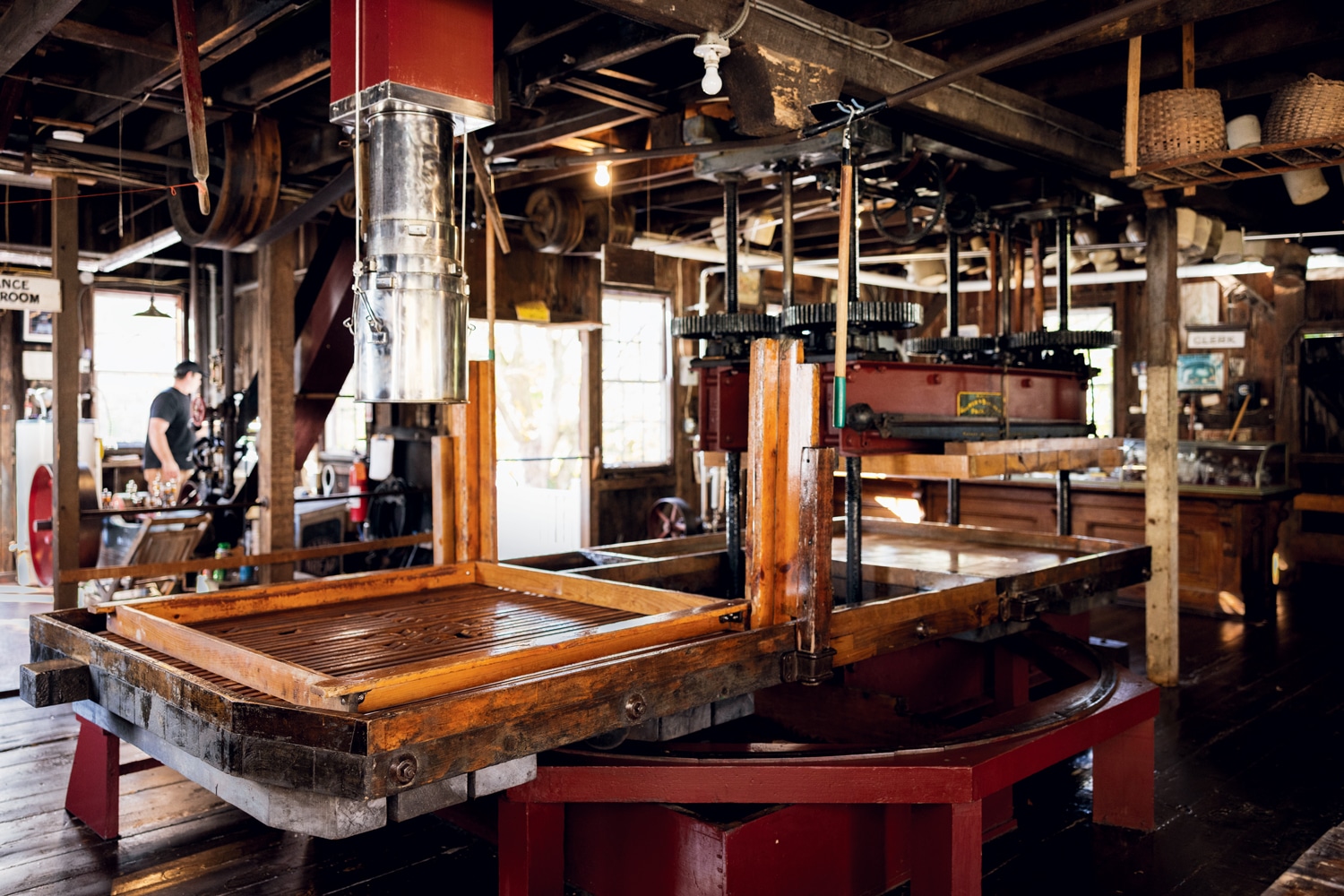
A contraption so rare it’s been designated a National Historic Mechanical Engineering Landmark, the 19th-century steam-powered press at B.F. Clyde’s Cider Mill puts the squeeze on as much as 100 tons of apples a week.
Photo Credit : Allegra AndersonTucked into the village of Old Mystic, Connecticut, B.F. Clyde’s Cider Mill looks like a vintage model railroad station inflated to life-size proportions. You half expect to see a locomotive pull up and unload a crowd in top hats and hoopskirts. A white Victorian with wine-colored trim, scalloped shingles, and a cupola, the mill even has a whistle that looks and sounds exactly like that of a steam train. Its high-decibel shriek signals to staff and visitors that the old-fashioned work of pressing apples into cider is about to begin—and everyone comes running.
Inside, the air is almost sticky with the aroma of apples, but underneath it there’s wood, leather, and oil, a blend unique to this place. “We are the last steam-powered cider mill in the United States,” says Josh Miner, a fifth-generation member of the family that has owned Clyde’s since it was founded by Benjamin Franklin Clyde in 1881. Josh is shouting to be heard over the rhythmic clanking of the mill’s press, whose technology hails from the Garfield administration: pulleys and ropes, leather belts, wooden frames, cast iron gears. There’s no plastic in sight, save for the polypropylene pressing cloths and the bins they’re stored in.
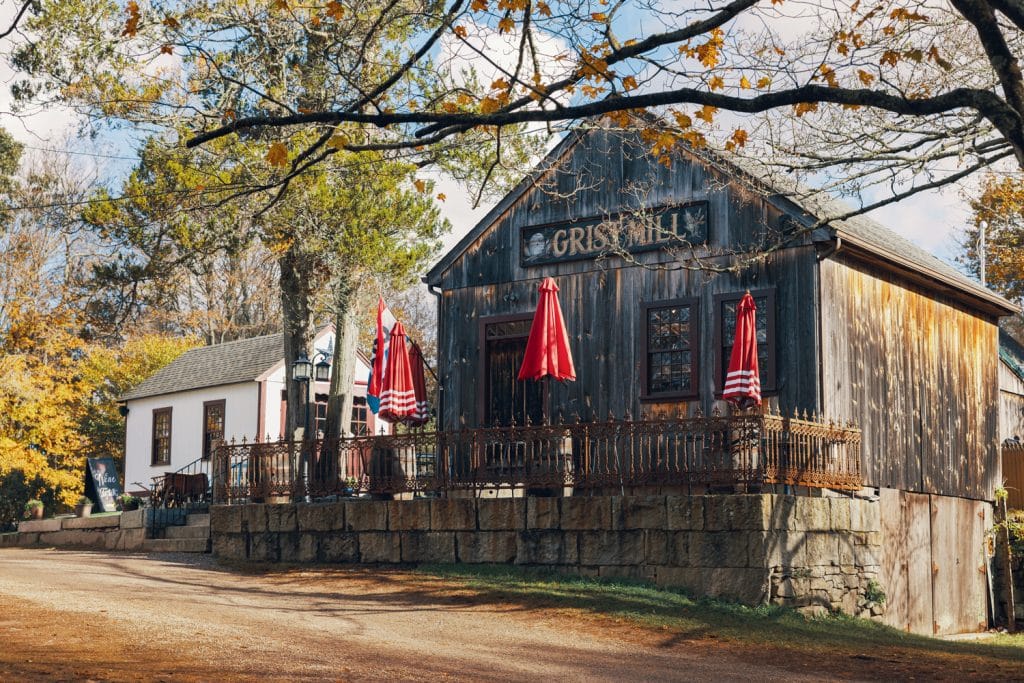
Photo Credit : Allegra Anderson
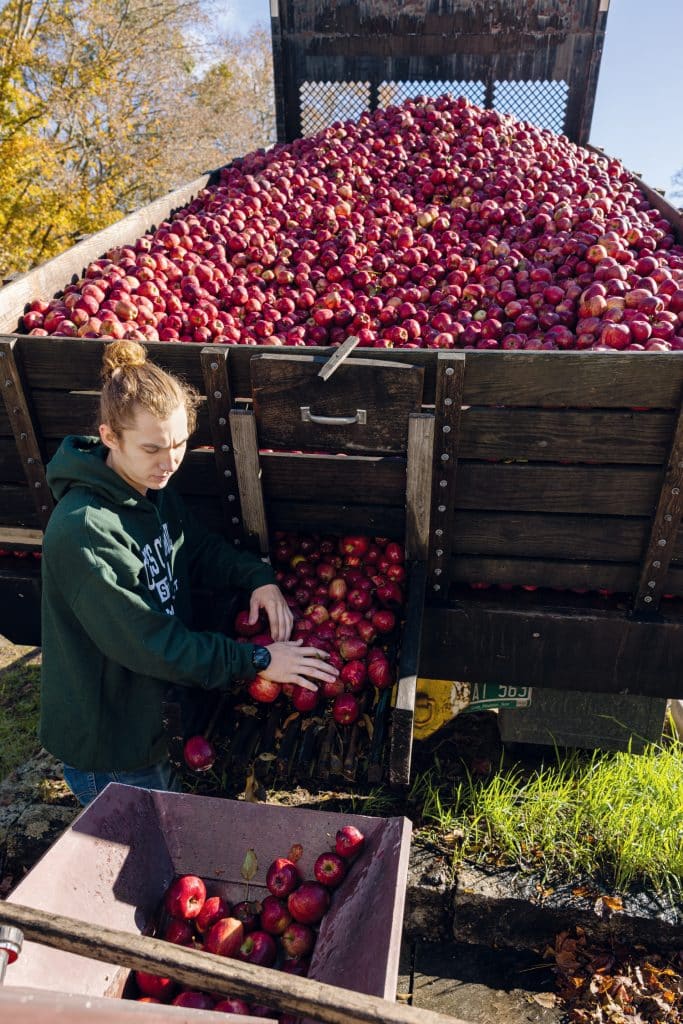
Photo Credit : Allegra Anderson
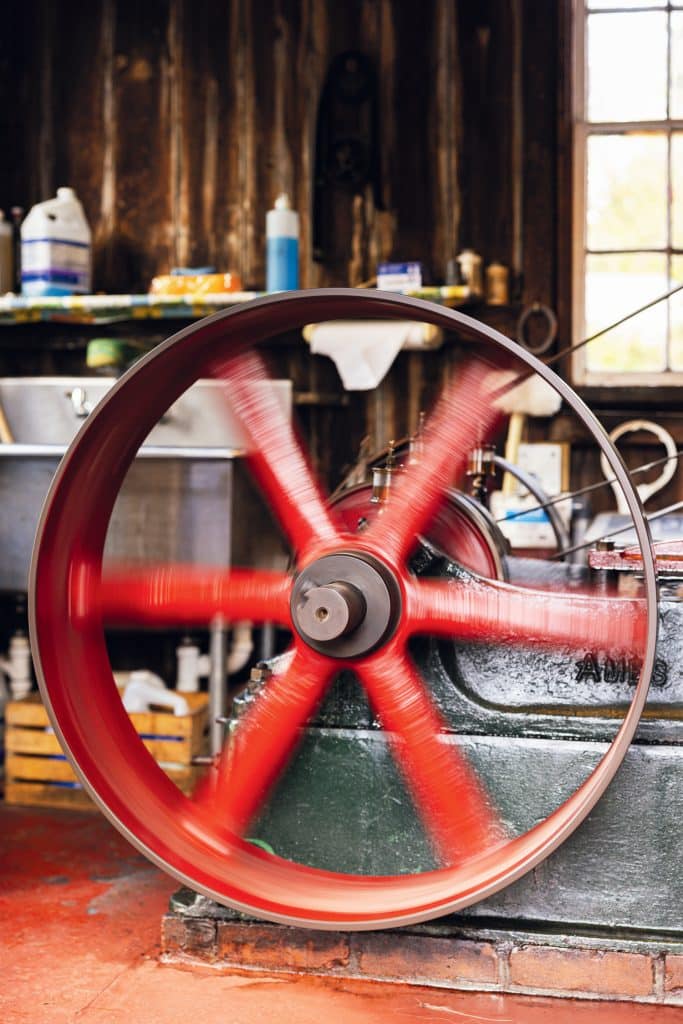
Photo Credit : Allegra Anderson
On pressing days during the mill’s operating season, which runs from September through November, you can follow the whole process from the moment the truck pulls up filled with apples from the Hudson Valley. It tips its bed to send fruit on a conveyer belt to the basement, where the apple washer scrubs the fruit clean (a well-placed window offers a view). After washing, the apples climb two stories to the grinder, which sits right above the press. With the pull of a wood lever, the grinder roars to life, churning the fruit into juicy pulp, which is then pressed between fabric-lined wooden racks until the juice flows thick and sweet into the wooden gutters and down to a well.
The press is a thing of beauty, a mid-1890s Boomer & Boschert from Syracuse, New York. Josh’s great-great-great-grandfather bought the press and built the Victorian surround from a kit. “Some would have put the machinery in a barn,” Josh says, “but this is special.” Over the years, as more and more cider mills went out of business, his grandfather would travel around and buy any parts on offer. This library of spares allows B.F. Clyde’s to make repairs without needing to order custom parts.
The mill is still a family operation, with the current staff including the fourth, fifth, and sixth generations of B.F. Clyde’s descendants. “We still speak most of the time,” jokes John Miner, Josh’s brother. And the mill’s long history is visible in details like the old stoneware cider jugs hanging from the ceiling, and a post marked with the heights of grandchildren and great-grandchildren dating back to 1978. But the family has also embraced change, adding flash pasteurization, a tasting room, and an underground pipe that transports the freshly pressed juice to the mill’s store, where two doughnut robots and a cider slushie machine are continually in operation. (As you walk around the property, beware of influencers who may stop short in front of you to snap a photo of a doughnut perched on their slushie cup—a pairing so delicious-looking even Yankee’s photographer couldn’t resist.)
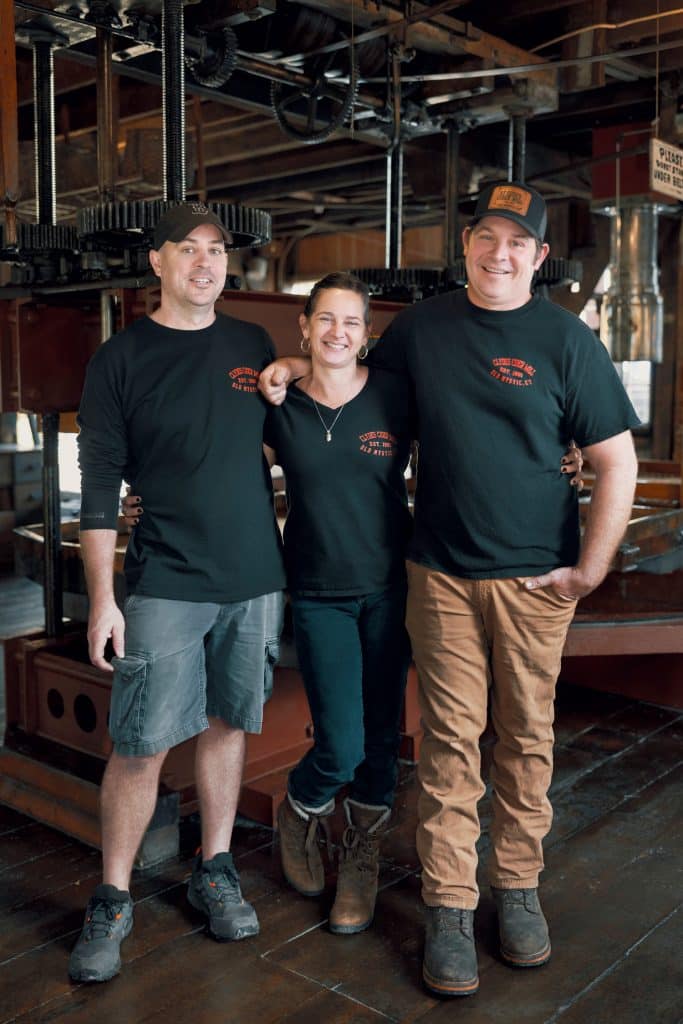
Photo Credit : Allegra Anderson
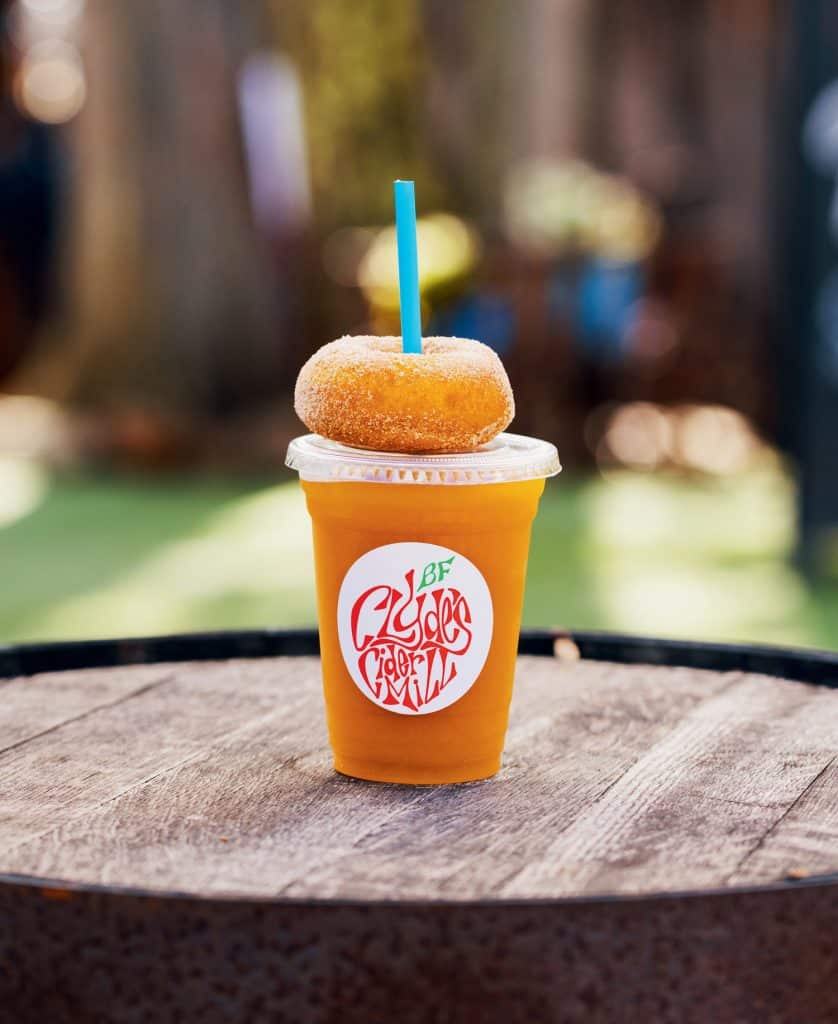
Photo Credit : Allegra Anderson
The mill is also a magnet for the school-age set. “Every so often, I go around and see families, and it just grabs you by the heart,” says Amy Harrison, John and Josh’s sister. “We give them that place to make memories—the ones who come on opening day every year, and the ones who have been coming for 60 years.” She got her nursing license years ago and has worked in the field on and off, “but even when I was a nurse, I always wanted to be here,” she says. “This is where my heart is.” clydescidermill.com
Amy Traverso
Amy Traverso is the senior food editor at Yankee magazine and co-host of the public television series Weekends with Yankee, a coproduction with WGBH. Previously, she was food editor at Boston magazine and an associate food editor at Sunset magazine. Her work has also been published in The Boston Globe, Saveur, and Travel & Leisure, and she has appeared on Hallmark Home & Family, The Martha Stewart Show, Throwdown with Bobby Flay, and Gordon Ramsay’s Kitchen Nightmares. Amy is the author of The Apple Lover’s Cookbook, which was a finalist for the Julia Child Award for best first-time author and won an IACP Cookbook Award in the “American” category.
More by Amy Traverso

